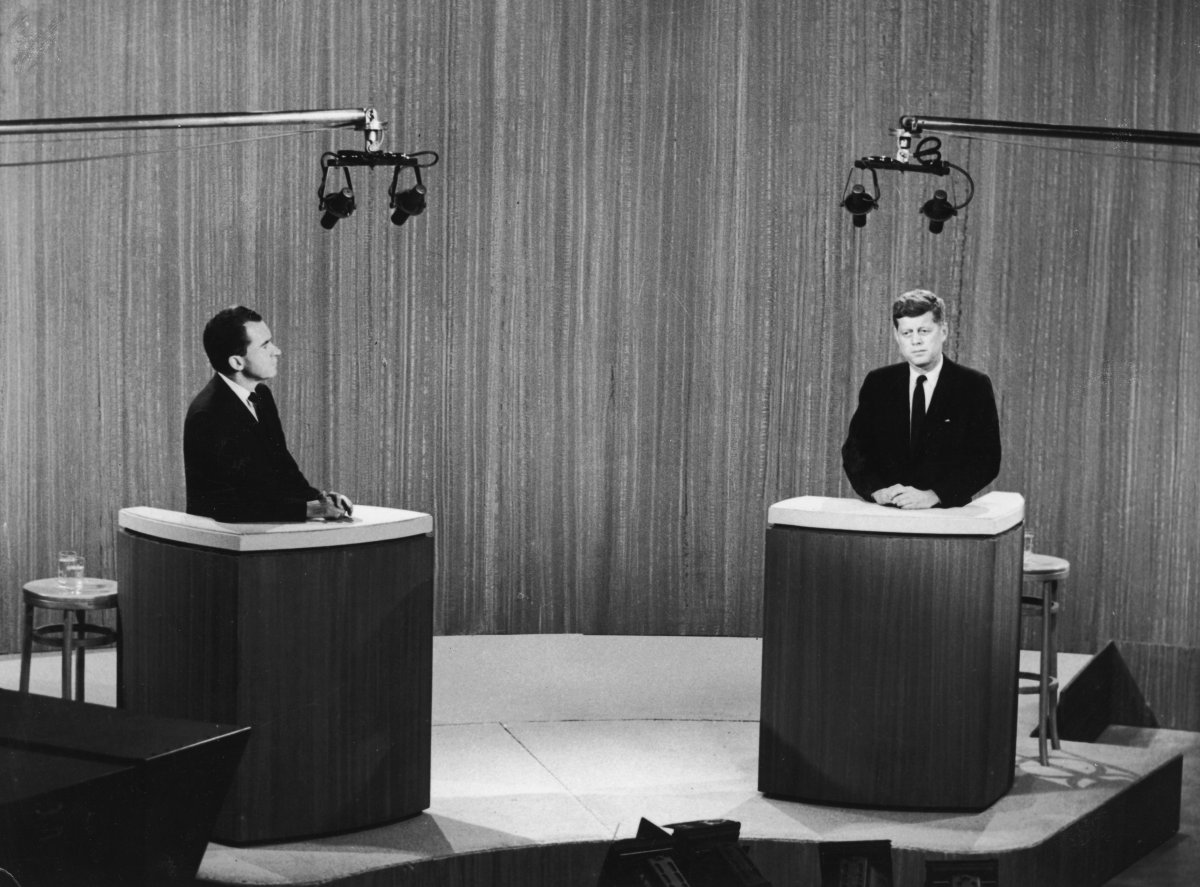As Americans prepare to watch President Donald Trump and former Vice President Joe Biden face off in the first presidential debate for the 2020 election, many people likely wonder how the practice of having two candidates engage in a verbal sparring match began. While the idea of a debate has existed for centuries and some of the earliest U.S. political debates can be traced back to the 1800's with Abraham Lincoln and Stephen A. Douglas, the debates as we know them today may not exist without Fred Kahn.
Born in December 1932, Kahn's life story is certainly an interesting one, even dating back to his childhood. He fled Nazi Germany at six years old and lived in Belgium until the end of World War II, he shared in a Made Into America piece he wrote. He went to the U.S. in 1952 and became a citizen in 1953, after having served in Korean War. Three years later, while a student at the University of Maryland, he would come up with an idea that would change presidential elections in the United States for the rest of history.
In a 2012 interview on NPR's All Things Considered, Kahn recounted how he came up with the idea for what would later become the presidential debates. The proposed idea involving Democratic nominee Adlai Stevenson and Republican President Dwight D. Eisenhower answering questions from students on campus. Khan wrote letters "to both Eisenhower and Stevenson, to the chair of the Democratic National Committee, to the Republican National chair" as well as to the governor of Maryland and Eleanor Roosevelt, who supported the idea of a debate. "She said she was going to forward two letters I had sent to the campaign manager of Stevenson," he told NPR. The former first lady thought the idea would appeal to a number of college students not just those at UMD. The Washington Post also reported in 2012 that he'd reached out to The Associated Press and United Press International.
Unfortunately, the Board of Regents banned political speeches on campus, but the attention and interviews Kahn gave seemed to implant the idea in the public conscious, and the first modern presidential debate took place in the next election with 1960's Kennedy-Nixon debate. "The idea of debate, which was then considered an anachronism, became a subject of conversation, so that in 1960 they were offered three times on television," he told NPR.
In a 2016 interview with The Diamondback, Kahn said he met Stevenson in Brussels two years after he first proposed the style, and said the former candidate pushed the idea for the next election.
According to a story submitted by Kahn to Made into America, he worked as a political economist in the federal government for 29 years. Speaking to The Washington Post in 2012, Kahn seemed to believe that the debates were part of his life's purpose. "As you get old, you think about what was the meaning of your life. Thinking back 56 years ago, I guess it was to make a difference," he said.
He told The Diamondback that students should still be invested in the presidential debates. "The televised presidential debates give the students a view of what is at stake by hopefully learning about the position of the presidential contenders on their views on the future of the country," he said in 2016. "That is, the national interest of the country."
Newsweek attempted to reach out to Kahn via Facebook and email, but did not receive a response in time for publication.

Uncommon Knowledge
Newsweek is committed to challenging conventional wisdom and finding connections in the search for common ground.
Newsweek is committed to challenging conventional wisdom and finding connections in the search for common ground.
About the writer
To read how Newsweek uses AI as a newsroom tool, Click here.






